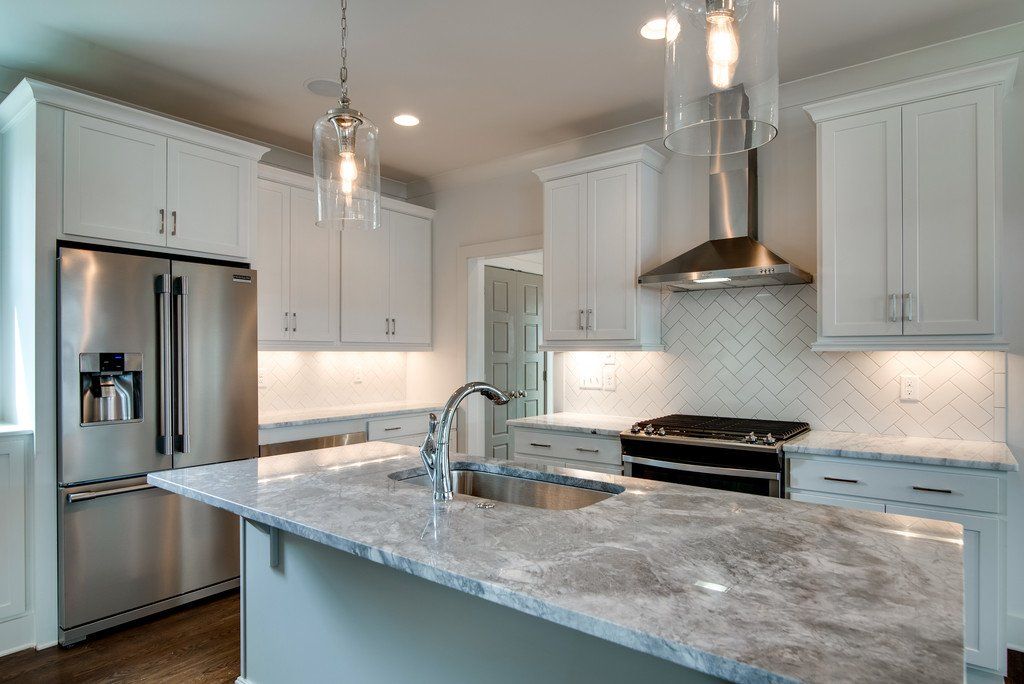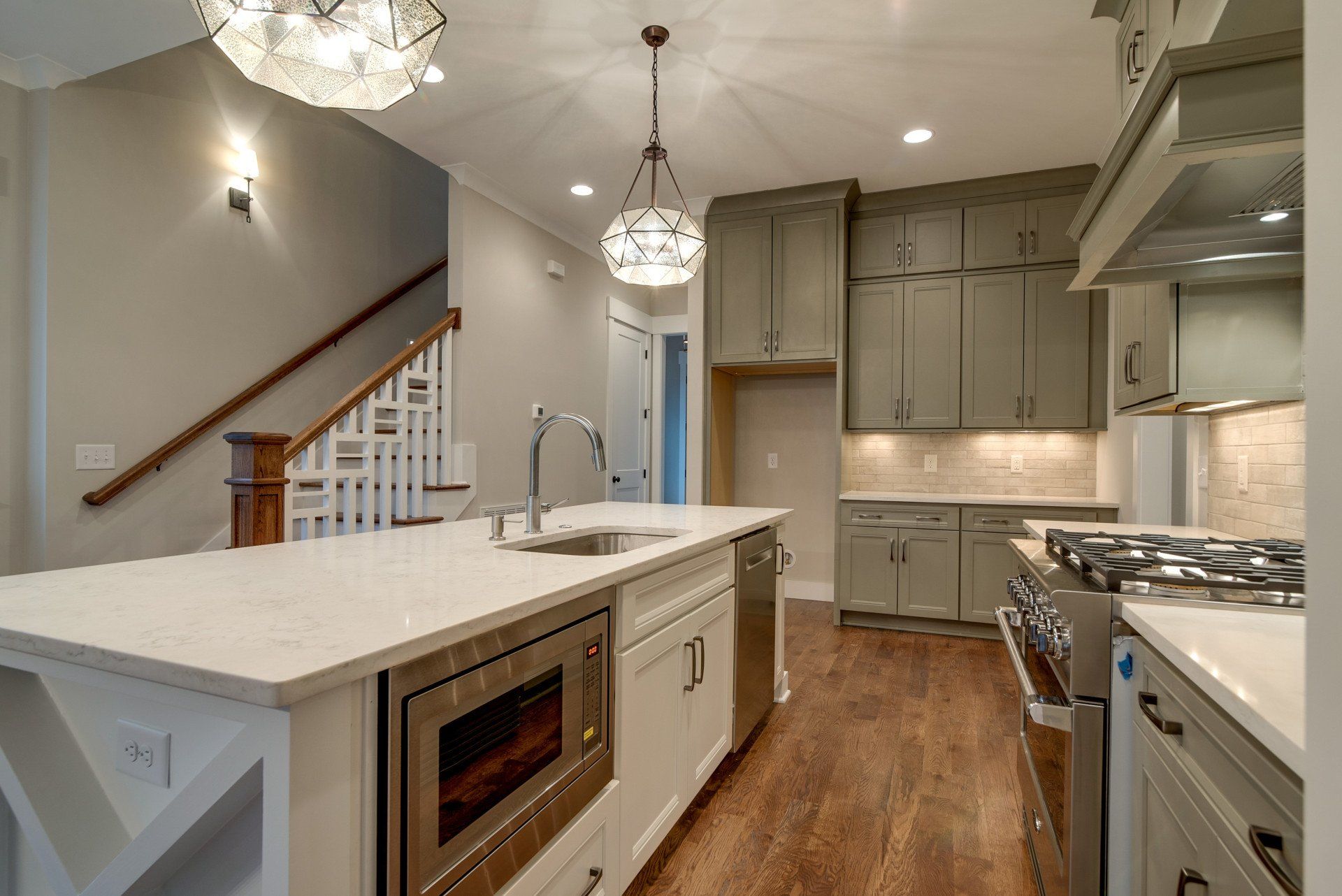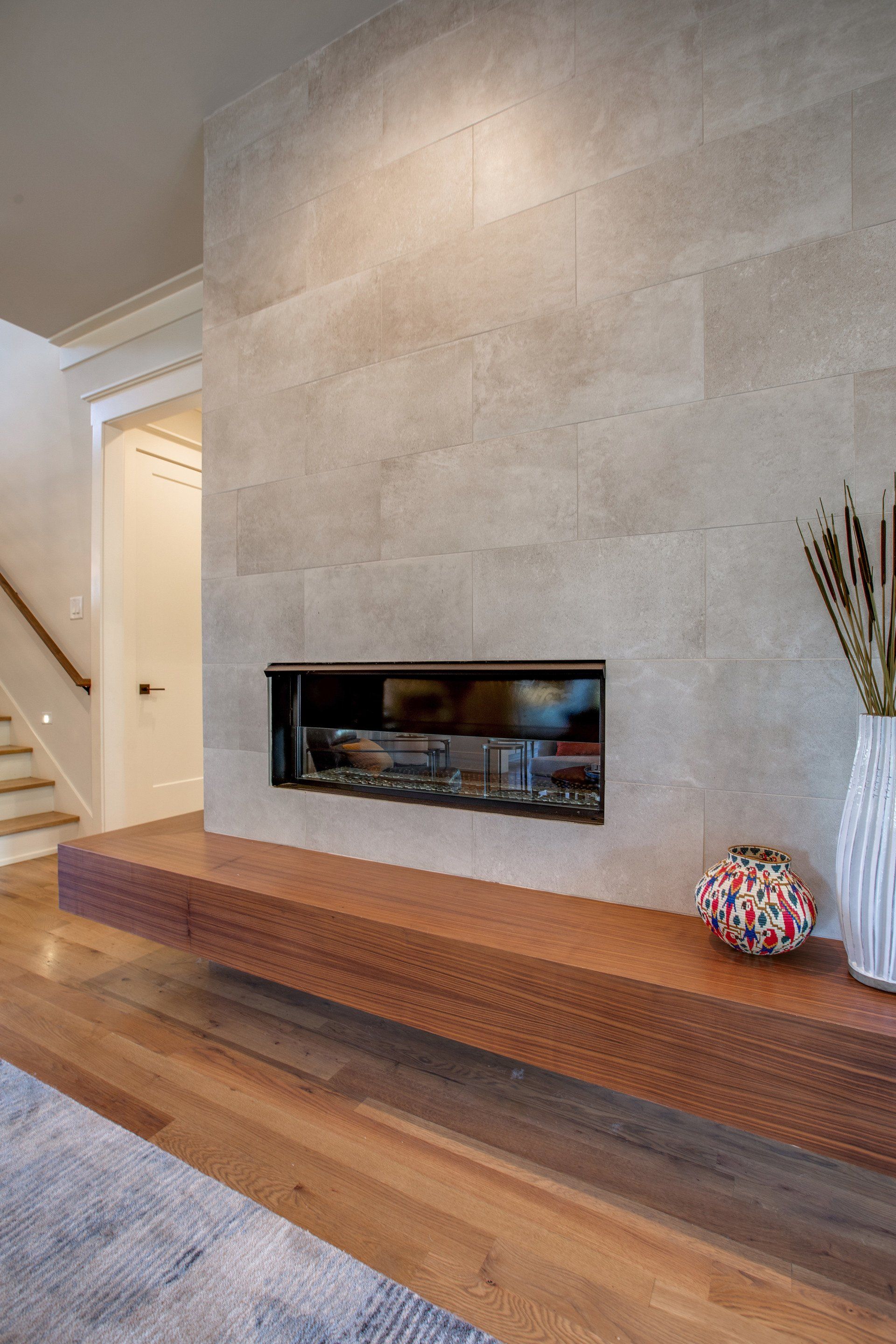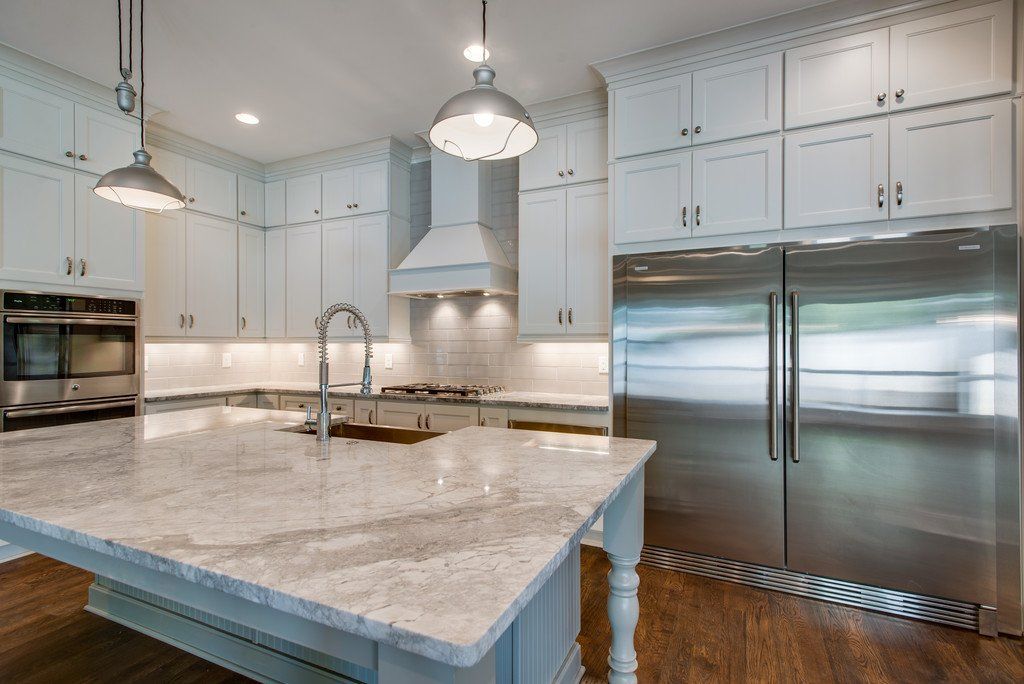HAVE A QUESTION?
- Is granite high maintenance?
In fact, granite countertops require very little maintenance. You only have to clean them with mild soap and warm water.
- How do I clean my granite?
For everyday cleaning, there are a number of products available on the market specifically designed for natural stone. Black Stone cleaners or a solution of two parts water to one part Simple Green works well.
We recommend using warm soapy water to wipe the entire counter surface on a daily basis. Avoid common household cleaners that are bleach or ammonia base. These cleaners can damage your sealer and leave your counters more susceptible to stains.
- Does heat damage granite?
Granite can withstand very high temperatures. Placing hot pans or a hot kettle will not cause any damage to the granite’s color or stability.
However, as with any natural stone, certain exposure to heat may cause cracks due to thermal shock. We do recommend that you always place hot items on a trivet or cutting board to protect your countertop.
- Can knives scratch granite?
Knives cannot scratch true granite. The only thing harder than granite is diamond.
Diamonds are scored at 10 on the MOH’s hardness scale and granite is scored at 7. Diamond blades are the only thing that can cleanly cut through granite. Other natural stones like Gneiss and Schist are commonly called granite, but they do not have a MOH score of 7.
- Can granite be damaged?
High impact blows can harm granite, especially to the corners and edges. Its crystalline structure makes it somewhat vulnerable to chipping from the blunt force of very hard objects.
Products such as oil, coffee, juice, and wine can cause stains or discoloration on unsealed granite. The heat from pots and pans or burning liquids will not affect granite under normal circumstances.
In the event that your granite does become damaged, Creator’s Stone offers a repair service. We also offer a 15-year granite sealer to preemptively protect your surface for years to come.
- Can granite be repaired?
At Creator’s Stone, we repair chips or cracks that occur from accidental impacts.
- Does granite harbor bacteria?
No, the Center for Disease Control has not found any evidence to suggest that bacteria grows on granite.
- Does granite need to be resealed regularly?
If you use high-quality impregnating sealers like DuPont Bulletproof sealers, you should have to reseal your granite every three years. If you use a cleaning liquid called Revitalizer, also made by DuPont, the sealant lasts a lifetime.
A gallon container of Revitalizer only costs $39, which will last 2 to 3 years depending on the size of your countertops.
- How much can I extend the granite overhang?
Granite countertops can often be extended beyond the cabinets to give an added functionality to kitchen spaces.
A standard overhang is 1 ½” from the face frame of the cabinets. This gives a good visual appearance because it creates a ¾” overhang from the door fronts. You can compare this to the 1” overhang common with laminate countertops.
The actual overhang may slightly vary depending on how straight the countertops are installed. Having the cabinets not installed in a straight line is not an uncommon problem.
A Creator’s Stone team member will discuss these issues with the homeowners before the countertops are installed.
We can extend the 3 cm granite countertops up to a maximum of 8” from the cabinets unsupported. We can be a little more liberal and extend them 10” with certain strong granite varieties.
Upper bar tops that sit on a 5” knee wall have to be supported by steel braces placed under the countertop and then screwed into the wooden studs in the knee wall.
Any granite countertops with more than an 8” overhang should be adequately supported by steel braces.
Extended islands, higher-level bar tops, and peninsulas are some of the areas of the kitchen that may have an extended overhang up to 12”. We place permanent steel bars to support and create an invisible countertop that doesn't hit your knees.
- Do seams in granite show?
Yes and No.
Yes, seams are visible if you look carefully at the countertops. However, our team has the expertise and experience to make them as inconspicuous as possible.
- How do you attach the granite countertops to my cabinet?
The stone countertops are placed on the cabinets after ensuring that everything is leveled. A bead of silicone is applied at the intersection of the cabinets and the underside of the stone to hold the countertops in place.
If the cabinets are not leveled, which is not uncommon, we have to place shims underneath the countertops to level them. In this situation, our installers place small blocks of wood pieces rinsed in epoxy to stabilize the shims.
- Do I need to reinforce my cabinets for granite installation?
No. If you use 3cm (1 ¼”) thick granite, which is standard in the Middle Tennessee area, you do not need any special reinforcement. You may need some additional support in the corners of walls that our template specialist (the guy who comes to measure) will be able to explain to you.
- Can you level my cabinets?
No, we do not level your cabinets. You will need the help of your carpenter or your contractor for that.
- What is the thickness of the granite used for countertops?
The countertop industry uses a standard 3cm (1 ¼”) thick granite for kitchen countertops. 1 ¼” thickness granite is sturdy enough to be placed directly on the cabinets.
- What surface finishes does granite come with?
- Polished: A shiny, glossy surface. This is by far the most popular.
- Honed: A matte finish.
- Leathered: A rough texture. Suitable for outdoor kitchens, though some designers like to use it inside as well.
- How much does granite weigh?
Granite weighs about 16 to 17 pounds per square foot.
- Is granite expensive?
Entry-level granite countertop prices have become very affordable because of the abundant supply of natural granite and modern technology.
- Does Creator's Stone help me choose my granite color and style?
Yes, our in-house designers help you at no additional cost. Our project managers have years of experience and expertise to assist you throughout your project.
- Do you work with other local stone suppliers in case I want more options outside your inventory?
Yes. We will gladly order the material from other local suppliers and install it for you. Creator’s Stone maintains fantastic relationships with all the local stone suppliers in Tennessee and throughout the southeast. Creator’s Stone has access to almost any type of stone and color you could want.
- What are your service areas?
We mainly work in the greater Middle Tennessee region. However, we have had projects as far away as Kentucky, Alabama, including East and West Tennessee.
- What is Granite?
Granite is a naturally found stone composed of several large mineral grains tightly packed together. The main components include Feldspar and Quartz with a mix of other minerals including Biotite and Muscovite.
The minerals Feldspar and Quartz, which are the major components of granite, are harder than steel. This is why throughout human civilization, granite has been used as a building material.
The mica minerals called Biotite and Muscovite are more minor components of granite and give it a glittery appearance.
- Why is Granite so popular?
Granite has emerged as the most popular kitchen countertop material because of its natural beauty and durability.
- Adds value to your home
- Heat, scratch, and stain resistant
- Long-lasting and durable
- Minimal maintenance
- Affordable
- Where do you source your granite?
Granite is naturally formed in most parts of the world, but it is quarried in significant quantities in Brazil, India, Italy, Africa, Norway, Finland, and China. A majority of the most desirable granite slabs used for kitchen countertops in the USA come from Brazil, India, and Italy.
- What are the pits in the granite?
It’s not uncommon to see some small pits on the surface of the granite slabs. These pits are formed during the polishing process, when some of the weaker components of granite, like Biotite, flake off from the surface. This happens at the granite processing plants in different countries where the granite is quarried and polished.
The pits themselves do not make the granite less durable or inferior for use in countertops. It is best if you discuss these concerns with the fabricators before you make the final decision on your stone selection.
We do not recommend that you have the pits filled because no compound can adequately or permanently fill these spaces without visually affecting the surface of the stone. The best practice is to discuss imperfections with your fabricator before selecting the stone. If you really hate the pits you should consider a granite that has no visual imperfections.
- Will Creator’s Stone hook up my sink and faucet after the new countertops are installed?
Creator’s Stone field technicians are not plumbers and are not qualified or insured to perform plumbing installations, add new plumbing, or reroute existing plumbing. We recommend our customers use a licensed plumber to handle all plumbing work required to complete your project.
- What is your lead time on installation?
We strive to complete jobs in a timely and professional manner. Lead times can vary depending upon our current workload and your countertop specifications and material selections. The typical turnaround time for stock material is 3-5 business days from the template date.
64 Industrial Park Dr, Hendersonville, TN 37075
All Rights Reserved | Creator's Stone, LLC | Powered by Flypaper in Nashville | Privacy Policy






